On the Other Side of Capitol Hill
An extraordinary event began what we’d hoped would be an ordinary year.
On Jan. 6, a mob of pro-Trump rioters invaded the Capitol Building to protest against a congressional vote to approve the electoral college results. As most of us were in fifth period, Pennsylvania Avenue was flooding with thousands donning red hats and waving an assortment of flags — many racist or antisemitic — in a march to Capitol Hill. By early afternoon, the mob had pushed past police lines and breached the Capitol itself, shattering windows and taking selfies in Congresspeople’s offices and on the Chamber floor, which had recently been filled with representatives who had to be evacuated. In the following hours, forces cleared the mob from the Capitol and President Trump recorded a video in which he maintained that the election was fraudulent but urged rioters to go home peacefully.
Finally, at 3:40 a.m. on Jan. 7, Congress certified Joe Biden and Kamala Harris as President- and Vice President-elect, clearing the way for them to take office on Jan. 20. Ultimately, it was reported that five people were killed, including one police officer, and many more were injured.
My recount of what happened on Jan. 6 is cursory given how much happened. Everyone is probably already familiar with the news. In my eyes, the more important conversation is about how this happened, what it means for the nation and what should come after.
First and foremost, the insurrectionists who infiltrated the Capitol should not represent Americans or America, nor should they even represent Republicans. They are extremists and are responsible for the unjustifiable actions they carried out. However, the “red elephant” in the room should be addressed: they were guided on their march by the actions of Donald Trump and his backers.
They were incited by Trump, who’d encouraged them to walk to the Capitol after attending his rally earlier that day, and who had, for months, decried the electoral college results as fraudulent. Furthermore, the rioters were enabled by the very people whom they were endangering in the building, the Republicans who were objecting to the results and complicit in Trump’s attempts to discredit American democracy. An individual’s cries of fraud become dangerous to democracy only when he is given a microphone by those who have been voted to protect it.
I don’t think that the two-thirds of Republican House Representatives and the quarter of Republican senators who planned to object were unaware of all the vote recounts, Department of Justice rulings and overturned court challenges that affirmed the integrity of the electoral college results. I don’t think they really believed there was a conspiracy that robbed their man of victory.
What I do think is that they wanted to keep their voter base appeased, and knowingly chose Trump over democratic integrity to fuel their self-interest. What I do think is that they should have seen an uprising coming and should accept accountability for their part in it. If you continually tell people that the system is corrupt, they will “stand back and stand by” to attack the system. Don’t be surprised when a fire sparks from the deadwood you’ve left unchecked, and don’t be surprised when you’re caught in the fireplace when it erupts.
So, I was not surprised that a mob went to the Capitol on Jan. 6. But I was surprised that they infiltrated it.
The Capitol should’ve been one of the most protected buildings in the world on that day. The Capitol has had its own police force since 1828, and given the controversy and tension since the election in November, there should have been greater security on the ground. And the police who were present were disconcertingly ineffective. Videos showed many merely standing by as rioters heckled them and invaded their space, a far cry from the tear gas deployed on peaceful Black Lives Matter protesters in the very same District.
I’ve heard many speculations as to reasons for the dearth of security. One speculation that I have not heard from anyone else is simply American complacency.
It’s comparable to our COVID-19 response. In 2019, we were debating whether AI would betray us; yet, as we ruminated over the likelihood that our genius technologies would become too genius, all it took was the most primitive form of maybe-not-even-life to shake us. Having enjoyed a nation of prosperity and power for so long, officials didn’t consider that an insurrection (no, those are reserved for developing nations) could ever touch such a goliath as the United States. Yet all it took was the most primitive form of protest, a temper tantrum, to shake the capital of our democracy.
The lack of security on Capitol Hill could easily have been exploited in worse ways. While it is a tragedy that five were killed and many more injured, casualties could have multiplied had a deranged rioter fired an automatic weapon, or had the mob been more organized and forced their way into the building before Congress could evacuate. In fact, two pipe bombs were found at a short distance from the Capitol. Had violence escalated to the unthinkable, the damage done to American democracy and stability would be unfathomable. On Jan. 6, Capitol Hill could have become the nation’s pyre.
Regardless of what could’ve happened, there are heavy consequences to what did happen. The storming of Capitol Hill is just the epicenter of ripple effects that will touch many Americans: with a likely surge in coronavirus cases on the horizon, potentially exacerbated because many rioters did not wear masks or social distance, ICU capacities will be further overwhelmed and more casualties will be linked to what happened at the Capitol. After Trump leaves office and faces potential prosecution, the Republican Party will grapple with an existential crisis. How do they approach the insurgents who now condemn them as traitors? How do they hold their own in a Democratic Congress? Historians may well reflect on this era as the Divided States of America, and what happened on Capitol Hill will not be forgotten.
And how should the country proceed from here? The insurrectionists should go down as failures. Their act of domestic terrorism was an attempted show of strength to mask their failure in the Georgia runoff and their failure in the presidential election. Their self-branding as revolutionaries has also failed — revolutions call for reformation, and the rioters advocated for no change besides chaos. And at the end of the day, they failed to disrupt the electoral college certification as they’d planned.
Ironically, they hastened Biden’s confirmation, as some of the Republicans who planned to object changed their minds — hopefully, this can unite the country. Let division be left behind in 2020. It is not Democrats versus Republicans, nor Biden supporters versus Trump supporters. It is Americans versus terrorists. Democracy versus chaos. Let Americans show that American democracy can withstand what happened on Capitol Hill. Those rioters may have thought themselves as American heroes, but they are only heroes to the Putins and Lukashenkos of the world, to the dictators who would love to see America, and the liberties that it should stand for, cave in on itself.
Any sane person would’ve been horrified as they watched the insurrection. I think that my perspective as a student and teenager enhanced my reaction. It was especially horrifying to watch thousands of adults trample over the rules that we learned in preschool: think before you act, be a good sport, your actions have consequences, don’t believe everything you see online and most importantly, be respectful. The last time that the Capitol was stormed was by British redcoats in 1814 — to see red hats breaching the Building in 2021 while brandishing Confederate and antisemitic symbols was disgusting. They are the parents and grandparents of our country, the people who should be setting an example for us to follow. But I’m sure that any one of us sees the error in saying, “If I don’t get an A on this test, the test was rigged against me and I deserve to overturn my grade in any way I see fit.”
Especially as a teenager, I felt anxious. In school, I was taught about the self-sufficiency of American democracy, with its checks and balances and separation of powers. But here was the legislative branch teaming up with the executive branch in defiance of judicial checks and voters. Trump, complicit Republicans and insurrectionists were not attacking voter fraud; they were attacking the institution of voting. As an incoming voter, this gave me pause. Is there a point in voting for a winner if the losing side will refuse to concede? Is there a point in trying to use my voice if it will be drowned out by, “Stop the count!”?
This attack on democracy cannot set a precedent for every following election year. That is where we as high schoolers have a role to play. We, too, need to be united, as the inheritors of this country. We are no strangers to dispiriting news, and we need to observe, have conversations about and learn from what we see. To me, the most important thing, especially these being our formative years, is that we do not become desensitized: what happened at Capitol Hill and the events that enabled it were not normal, not justifiable and were the antithesis of the America we should strive to be. As incoming voters, we cannot allow the threat of a temper tantrum by angry losers to discourage us from voting to improve our country. And as teenagers, our impact on the future will depend on having conversations and being informed about what is going on now, whether with our friends, our classes or our clubs.
As we move forward, what we find on the other side of Capitol Hill must be solidarity and cooperation. We need to live up to our name of the United States rather than fight fire with fire, division with division, because we have seen what can erupt when a flame goes unchecked.

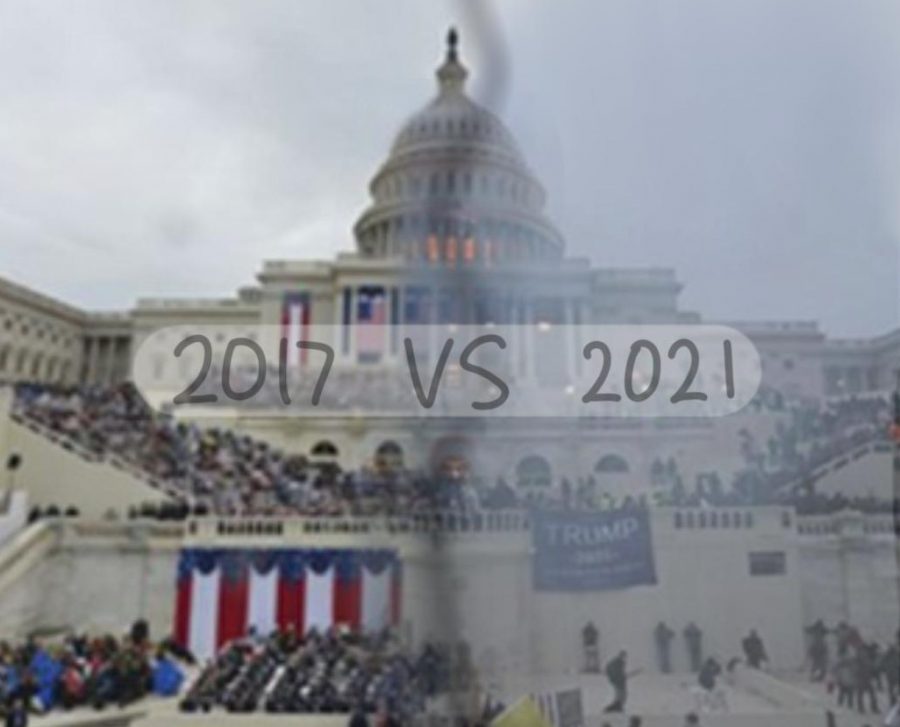


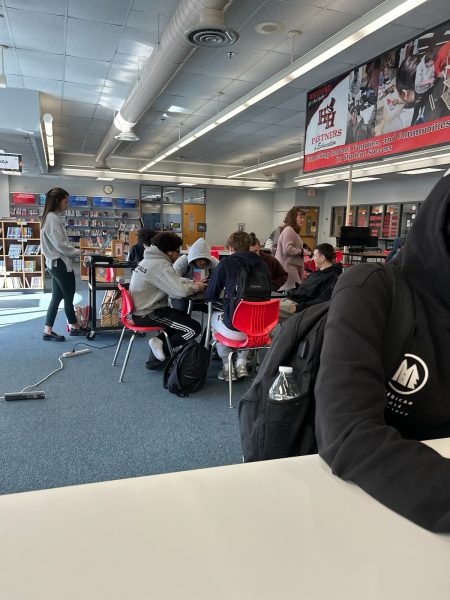
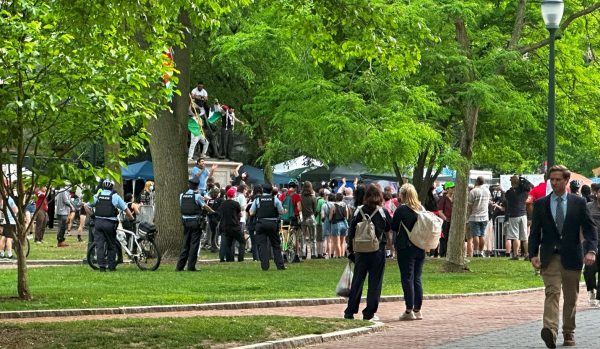



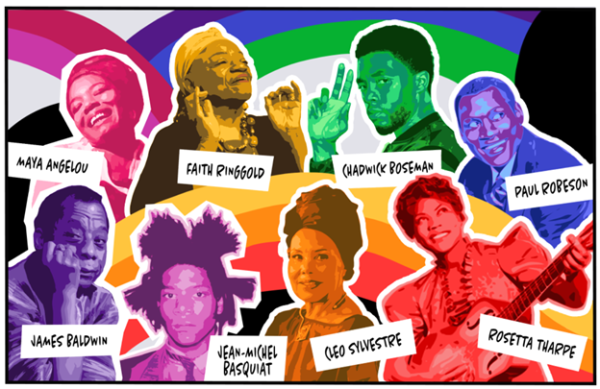

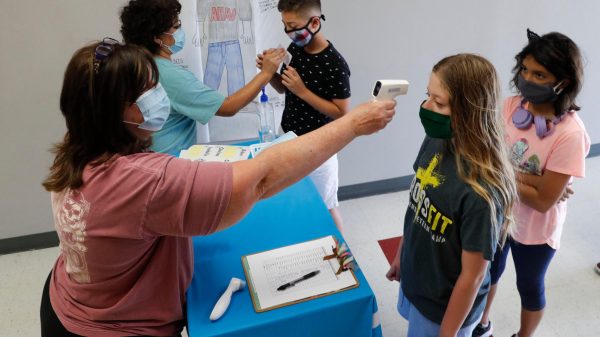
Danielle • Feb 27, 2021 at 9:24 pm
Though I am late to the conversation, I would just like to say that this incident is a very important piece of history that is still important to read about now, when trump is no longer in office. I would also like to add how well the writer uses facts to portray this knowledge in an accurate way without sounding biased or partial.
Keep up the good work Lily Wu!